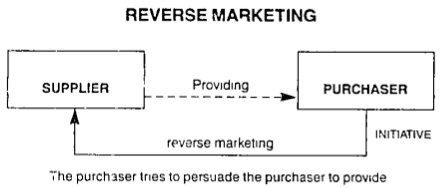 Many importers are shocked because they need to convince Chinese manufacturers to work for them, rather than the opposite. They need to “sell” their project. The reason is usually a combination of low quantity orders and high-complexity products.
Many importers are shocked because they need to convince Chinese manufacturers to work for them, rather than the opposite. They need to “sell” their project. The reason is usually a combination of low quantity orders and high-complexity products.
It is what academics call “reverse marketing” (1):
In reverse marketing, the buyer tries to persuade the supplier to provide exactly what the buyer needs. Without this buyer initiative the buyer is unlikely to offer what the buyer requires.
What type of arguments will help you convince the Chinese supplier if you are in this case?
- Your company has been in business for more than 5 years, and you are not the sole employee.
- The development of the product is already done (you have a working prototype, a bill of materials, and precise specifications). It means there is a low uncertainty, and the supplier won’t have to deploy high engineering efforts.
- You will sell (or, better, you already sell) to big brands that the supplier recognizes. There is an important upside to your project, if it is commercially successful.
———-
(1) Source of the concept and of the drawing: “Reverse Marketing: An Untapped Strategic Variable”, by David L Blenkhorn and Michiel R Leenders, in Business Quarterly – Summer 1988.


Good point here. I just started reading “Poorly Made in China” by Paul Midler, and this actually reminds of a story from there. Namely he has a client who says his supplier just stopped communicating with him, and as it turns out the supplier doesn’t really have too much faith in the reliability of the importer given his relatively small size and lack of original designs.
This is just one more aspect of the story that a sourcing job from China doesn’t just end with a search on Alibaba!
Buck,
I love that book! I read it twice. Full of interesting stories, and good lessons.